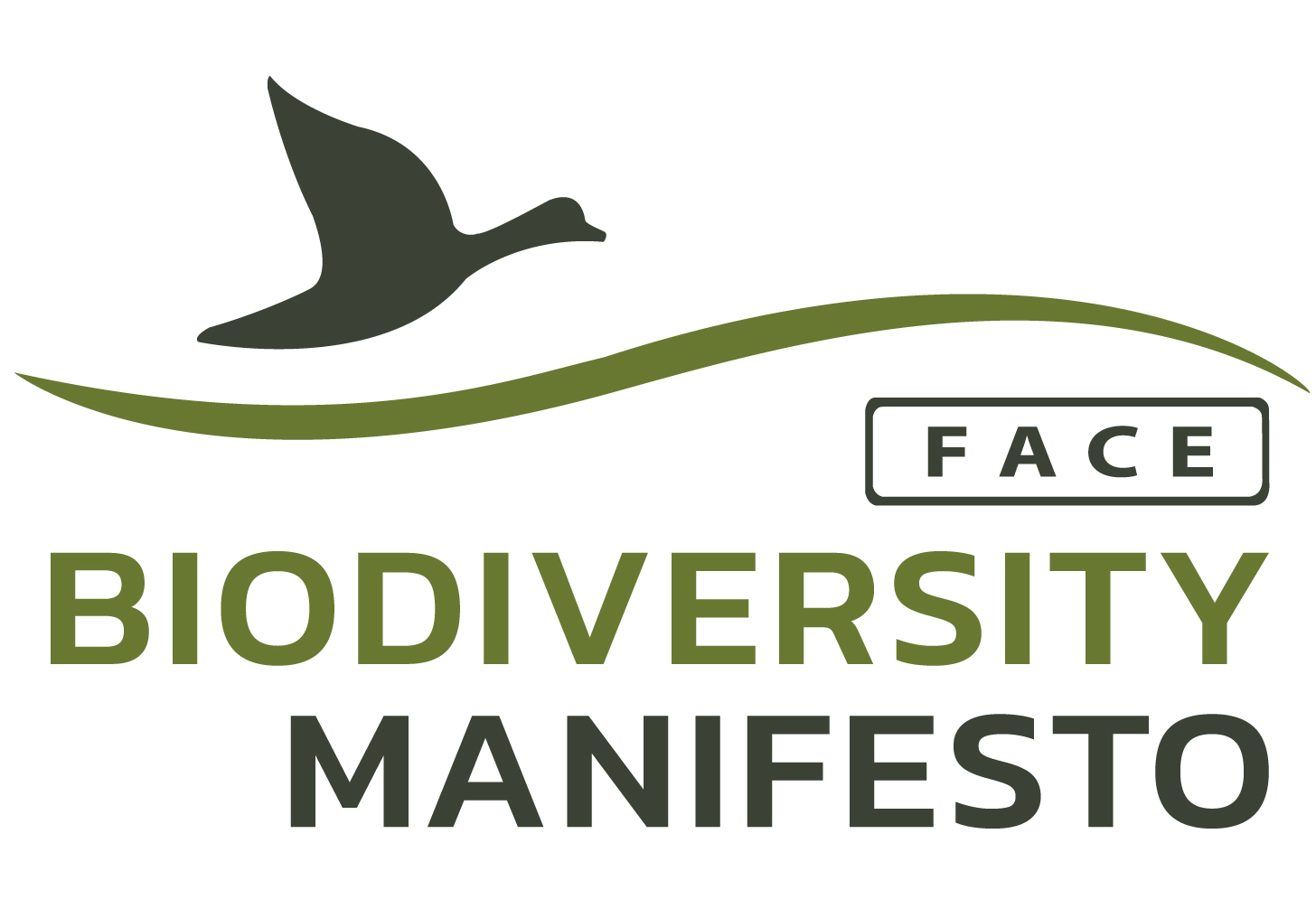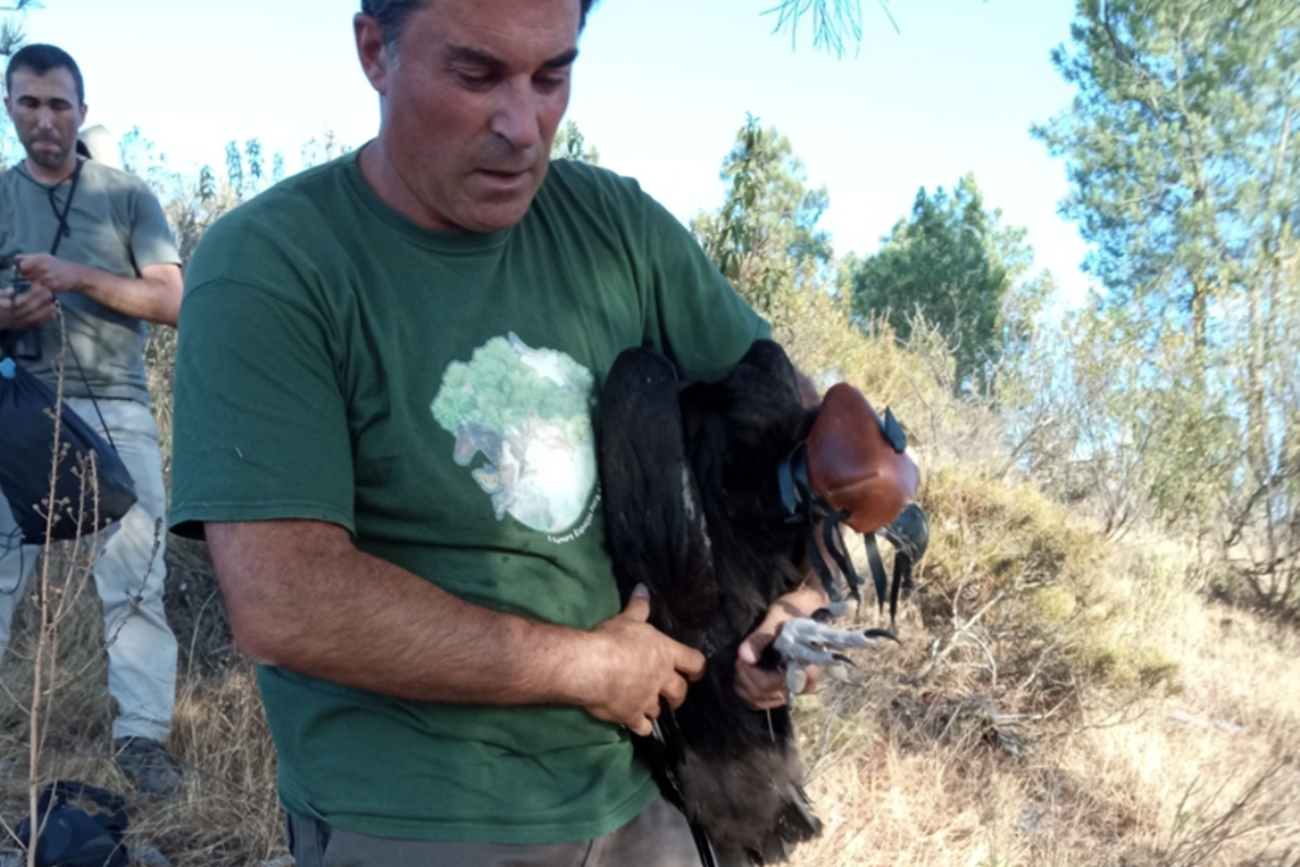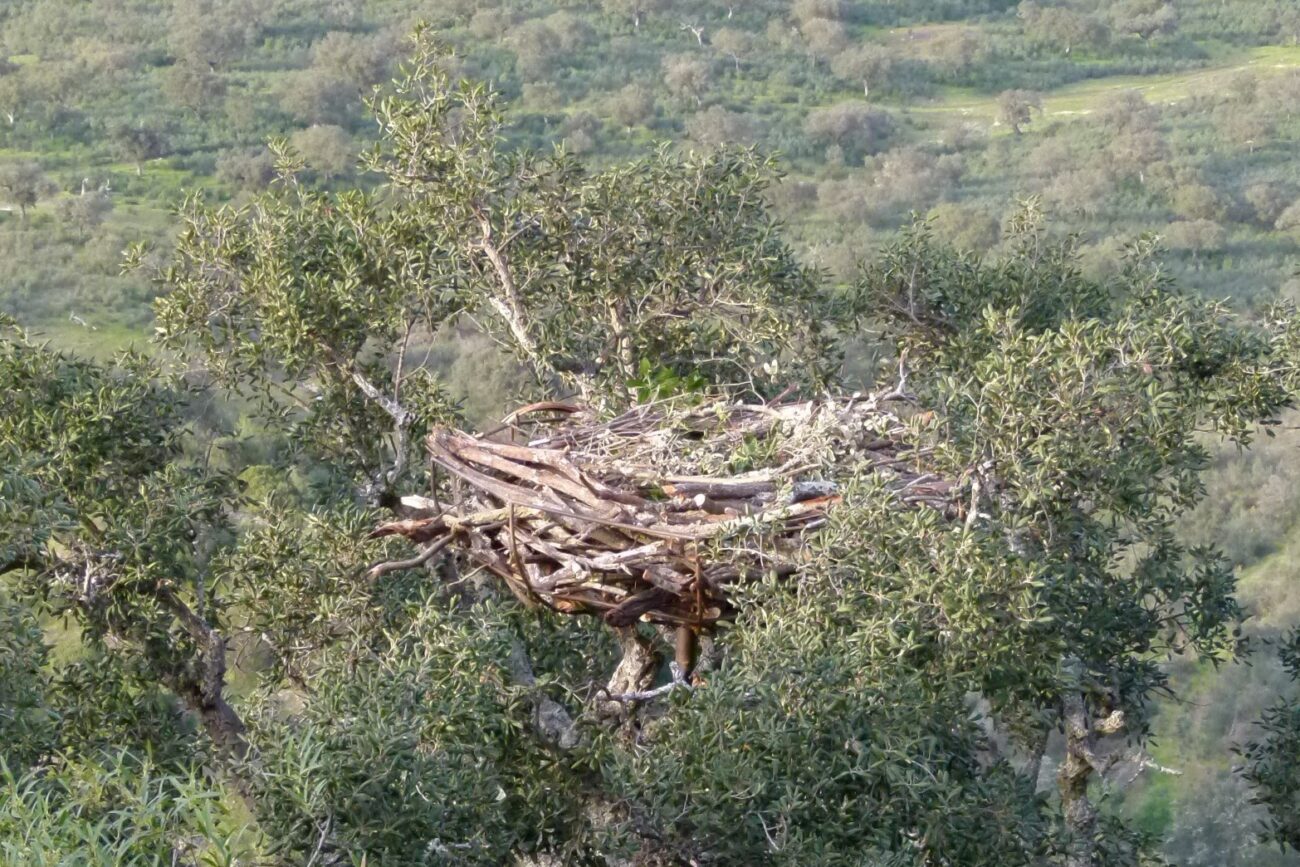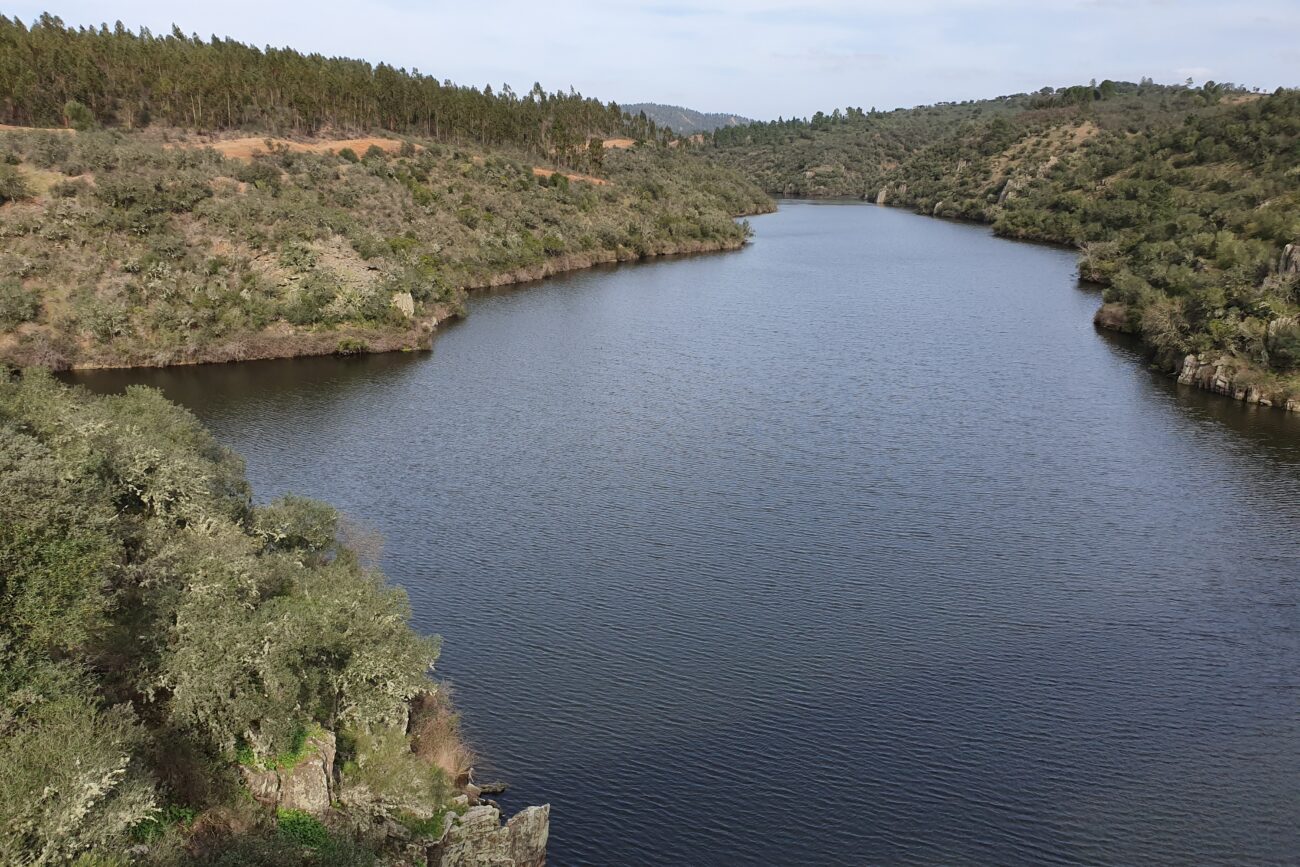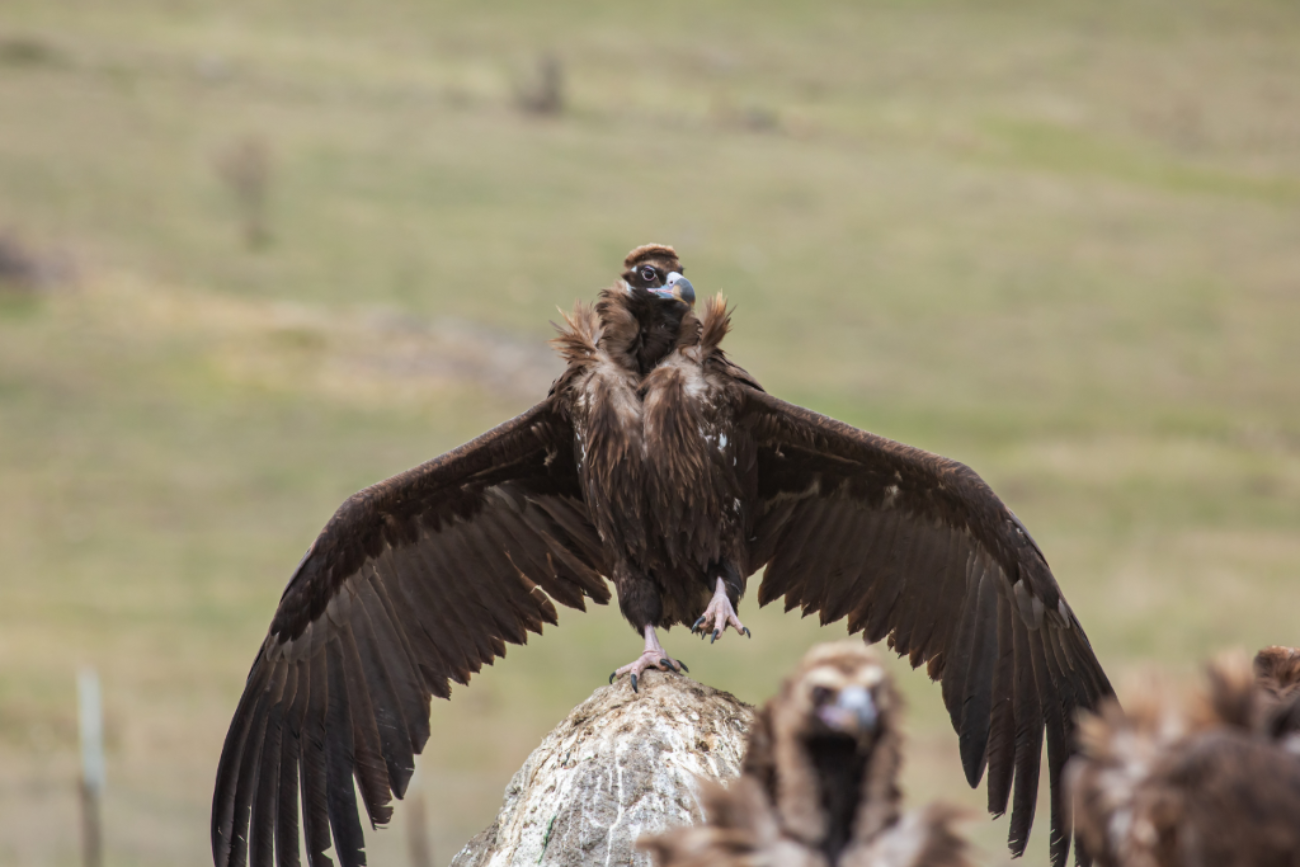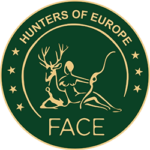The Cinereous Vulture is currently the largest vulture present in Portugal, but it hasn’t always been this way. In 2010, after more than 40 years of extinction on Portuguese territory, the species returned to cross the border to breed. The chosen location was Herdade da Cubreira, a property in central Portugal dedicated to big game management, hunting, and sustainable nature management. This is another excellent example of the contribution of hunting estates to the preservation of crucial habitats for the conservation of some endangered species.
Along with this return, the LIFE Aegypius Return project was born to consolidate and accelerate the return of the species to Portugal and western Spain. The project team is focused on improving habitat and food availability, as well as minimizing some of the threats to the species’ future. The project’s actions will focus on 10 Natura 2000 sites along the Portuguese/Spanish border with the aim of doubling the number of Cinereous Vulture individuals in Portugal by 2027 and reducing the species’ national status from Critically Endangered to Endangered.
Launched in 2022, the LIFE Aegypius Return is co-financed by the EU’s LIFE Programme and led by the Vulture Conservation Foundation with several partners, one of which is the Associação Nacional de Proprietários Rurais Gestão Cinegética e Biodiversidade, and Herdade da Contenda, a historic hunting estate in Portugal, representing the key conservation work that hunters, hunting estates, and hunting organizations do in favor of endangered species.
To achieve the demanding goals it has set, LIFE Aegypius Return will develop actions in three fields: habitat, feeding, and threats. While the objectives for the first two are to increase and improve their quality, in the case of threats, the actions aim to reduce them.
Habitat-related actions:
- Improve habitat around existing and potential colonies by managing approximately 15 to 20 thousand hectares in the locations of existing Cinereous Vulture colonies and in areas with potential for future colonies.
- Prevent wildfires through the management of 570 hectares and the creation of 25 kilometers of firebreak lines.
- Ensure safe nesting sites through the installation of 120 artificial nesting platforms and the maintenance of existing nests focusing on locations with the highest reproductive success.
- Soft release of 20 individuals from rehabilitation centers into the Douro colony, which only had 2 breeding pairs in 2022.
Feeding-related actions:
- Increase the effectiveness and safety of the existing supplementary feeding stations network and create new stations in strategic locations to enhance connectivity between colonies.
- Establish 66 unfenced feeding stations in Portugal and Spain allowing the Cinereous Vultures to exhibit as natural a feeding behavior as possible.
Threat-related actions:
- Prevent and reduce nest disturbances.
- Reduce lead poisoning in the Cinereous Vulture’s habitat in Portugal with the collaboration of 14 hunting estates and 300 hunters using alternative ammunition without lead.
- Improve capacities to mitigate poisoning and other wildlife crimes.
- Reduce electrocution and collision through data collected using GPS tracking systems.
- Assess the movements and behavior of 60 Cinereous Vultures by equipping them with GPS transmitters.
- Improve the knowledge and awareness of the prevalence of veterinary drugs and lead intoxication in Cinereous Vultures and promote associated mitigation measures.
- Increase awareness and involvement of target stakeholders (policymakers, veterinarians, livestock producers, forest industry, hunters, tourism operators, and the media) and the general public on conservation issues regarding Cinereous Vultures.
In summary, the joint efforts between various stakeholders including hunting estates and organizations in the LIFE Aegypius Return project underscore the important role hunters play in conserving endangered non-game species like the Cinereous Vulture in Portugal. By cooperating to improve habitats, implementing feeding strategies, and addressing threats, hunters and hunting estates make significant contributions to preserving crucial habitats and strengthening vulture populations.
Through this type of joint initiative, hunters demonstrate their dedication to biodiversity improvement and sustainable management practices, highlighting the positive impact of their involvement in conservation actions.
Country: Portugal
Starting date: 2022
Leading partners: Vulture Conservation Foundation, Associação Nacional de Proprietários Rurais Gestão Cinegética e Biodiversidade
Species concerned: Cinereous Vulture
Source: www.4vultures.org
